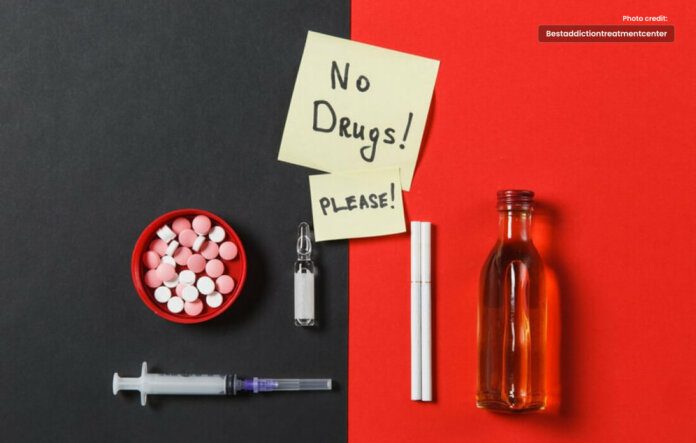Drug treatment brings hope, healing, and chance for a brighter future.
Introduction:
Millions of people around the world struggle with the complex and difficult condition of drug addiction. But recovery is feasible with the correct care and encouragement. Drug addiction treatment encompasses a range of approaches that address not only the physical dependence but also the underlying causes and psychological aspects of addiction In this blog post, we’ll explore the importance of drug addiction treatment, the key components of effective treatment programs, and the path to long-term recovery.
Understanding Drug Addiction:
Drug addiction is a chronic brain condition marked by compulsive drug use and seeking out drugs despite negative effects. It affects the individual’s physical health, mental well-being, relationships, and overall quality of life. It is crucial to recognize addiction as a treatable condition and approach it with compassion, empathy, and evidence-based interventions.
Key Components of Drug Addiction Treatment:
-
Detoxification (Detox):
Detoxification is the initial phase of treatment that focuses on safely managing the physical withdrawal symptoms when a person stops using drugs. It typically involves medical supervision and may include medication to alleviate discomfort and reduce cravings. Detox alone is not sufficient to address the underlying issues of addiction but acts as an essential first step toward recovery.
-
Behavioral Therapies:
Behavioral therapies are fundamental components of drug addiction treatment. These therapies aim to modify unhealthy thoughts, behaviors, and attitudes associated with drug use. Some common approaches include:
- Cognitive-Behavioral Therapy (CBT): Focuses on identifying and modifying negative thought patterns and behaviors that contribute to drug use.
- Motivational Interviewing (MI): A person-centered approach that aims to increase motivation and commitment to change.
- Contingency Management: Incentives such as vouchers or rewards are provided as positive reinforcement for abstaining from drug use.
Medication-Assisted Treatment (MAT):
Medication-Assisted Treatment combines medication with behavioral therapy to address addiction effectively. Medications, such as methadone, buprenorphine, or naltrexone, can help reduce cravings, alleviate withdrawal symptoms, and restore normal brain function. MAT is particularly beneficial for opioid and alcohol addiction.
Supportive Services and Aftercare:
A comprehensive treatment program often includes supportive services to address various aspects of an individual’s life affected by addiction. These may include individual and group counseling, family therapy, support groups (e.g., 12-step programs like Narcotics Anonymous), vocational training, and assistance with housing or employment. Aftercare planning ensures ongoing support and relapse prevention strategies to maintain long-term recovery.
The Path to Recovery:
-
Acknowledgment and Seeking Help:
Recovery begins with acknowledging the problem and the willingness to seek help. It takes courage to reach out to healthcare professionals, treatment centers, or support groups, but it is an essential step toward a healthier and happier life.
-
Individualized Treatment Plan:
A comprehensive assessment helps create an individualized treatment plan tailored to address specific needs and circumstances. Treatment plans may evolve over time to adapt to the individual’s progress and changing needs.
-
Commitment and Active Participation:
Successful recovery requires active participation and commitment from the individual. Engaging wholeheartedly in therapy, following prescribed medications, and actively participating in support groups contribute to the recovery journey.
-
Holistic Approach:
Effective drug addiction treatment recognizes the importance of a holistic approach that addresses the physical, mental, and spiritual aspects of a person. Physical exercise, healthy nutrition, mindfulness practices, and engaging in activities that promote personal growth and self-care are integral parts of the recovery process.
Conclusion:
Recovery is a lifelong journey that requires commitment, but with the right treatment, support, and determination, individuals can achieve lasting sobriety and rediscover joy and purpose. Remember, seeking help is a courageous step, and you don’t have to face addiction alone. Reach out, and together, we can break free from the chains of addiction and embrace a life of recovery.
Find out more about https://rockedgeurdu.com/




